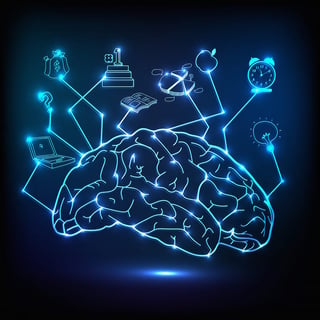
There are general misconceptions that surround children diagnosed with learning disabilities. Learning disability (LD) is often associated with poor achievement, low intelligence, and a lack of motivation. Yet, what many don’t realize, is that a large majority of people with LD have normal to above average intelligence and that poor achievement in LD students is often associated with a lack of support. Contrary to popular belief, Intellectual Disability (ID) is a separate diagnosis from learning disability.
In contrast, learning disabilities are only weaknesses in areas like writing, spelling, and mathematics. Person’s with LD do not struggle because of low intelligence, they struggle due to the unique ways in which their brains are organized. They do not process learning information in the same way that most people do. Due to this, they have more difficulty performing in school and work environments. Students with LD are not inherently lazy, they cannot simply work harder to cure themselves of their diagnoses, and they will be affected with their disability for the rest of their lives. However, that does not mean that they cannot be successful. And it doesn’t mean that we should treat them as if they are incapable of achievement.
Instead, we should provide LD students with strategies to optimize their success, as well as supportive environments that allow them to freely discuss their difficulties. Studies have shown that the best predictors of success in people with LD is how well they can articulate their learning disability and advocate for themselves. According to Anctil, Ishikawa & Scott (2008) it is pivotal for students with LD and their parents to learn the importance of being persistent. From their study of college students with LD, they found persistence heavily influenced competence, which in turn influenced career decision making and ultimately enhanced self-realization and positive identity development in the study’s participants. Moreover, having their parents as advocates, advocating for themselves, actively seeking accommodations for their LD, and being comfortable/self-aware of their disability were all factors in how well they could traverse life.
Based upon what is known from the literature, we need to develop a new view on LD and rid ourselves of the misconceptions that we have regarding students with disabilities. By creating programs and practices that promote self-confidence, reassurance, and support, students with LD will be more likely to properly navigate the environments that will aid them in being successful. The National Center on Secondary Education and Transition has noted that successful college students with disabilities are initiators, advocates, and active participants in their own education, which the center contends is often the opposite expectation of special educators (Stodden & Conway, 2002).
References:
Anctil, T. M., Ishikawa, M. E., & Tao Scott, A. (2008). Academic identity development through self-determination: Successful college students with learning disabilities. Career Development for Exceptional Individuals, 31(3), 164-174.
Stodden, R. A., & Conway, M. A. (2002). Supporting Youth with Disabilities To Access and Succeed in Postsecondary Education: Essentials for Educators in Secondary Schools. Issue Brief.





